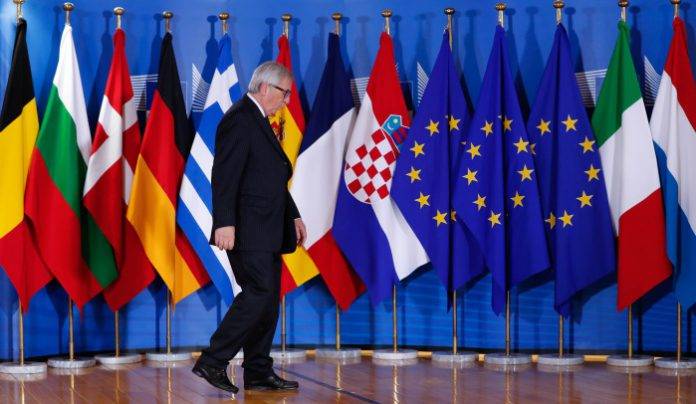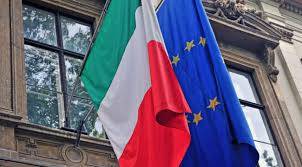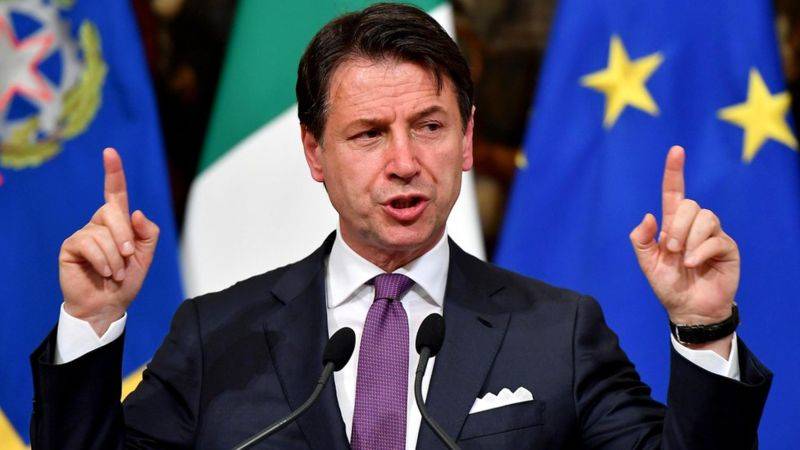The EU and Italian Debt: More Tolerance?
ROME -- On Tuesday morning BBC World Radio, instead of telling us more about the British Queen and the US President visiting the UK, led with the news that Italian Premier Giuseppe Conte has just warned his two deputies Matteo Salvini and Luigi Di Maio to stop bickering and get on with governing, as per their original accord just one year ago. Speaking at a press conference Monday, Conte threatened to resign unless the supposed partners show "loyal cooperation" and "honor the government's obligations." Implicitly, his resignation would crumble the government and precipitate early elections, probably in September.
Both deputy premiers said that they had no intention of bringing down the government. This is certainly true of Di Maio, who besides his role as deputy premier holds down two cabinet jobs and heads his Movimento Cinque Stelle party (M5S). Di Maio also resists new elections because just one year ago he won twice the votes as did his subsequent governing "partner" and hence twice Di Maio's strength in any Parliamentary vote. But since then their roles have been reversed, with Di Maio polling a mere 17% and Salvini's Lega at least 30%.
Like Di Maio, Salvini says that he has no intention of ushering in a government collapse and a new national general election even though he would then be stronger in Parliament. Instead he agreed, at least in theory, to get on with the originally planned reforms. Many of these he is promoting appear radical; imposing a flat tax, cutting pensions for old-agers to provide funding for youth, construction of the TAV tunnel into France, greater autonomy for the regions, a halt to migration, chemical castration for sex offenders, closer ties to Russia, and greater autonomy from Brussels.
The day after Conte's knuckle-wrapping, a peace of sorts was proclaimed. In a novelty, Di Maio telephoned Salvini; the two had barely spoken in recent weeks. Now they did, in what Di Maio called a "serene" climate. Both deputy premiers sent their respective parliamentary chiefs to meet, resulting in agreement over a heretofore hotly argued plan to smooth the bureaucratic route toward infrastructure projects that will, it is hoped, boost the economy.
And in fact both government, and to some extent the Italian political future, depend upon just that -- the economy. As James Carville said, when working for Bill Clinton, 29 years ago, "It's the economy, stupid." Well, yes. In recent days the spread rose, and the EU Commission threatened a procedure against Italy for its excessive public debt, "a crucial vulnerability," as the EU Commission wrote back in October in a letter to the government. If the EU does take action against Italy, it will be the first time in history that this complex procedure has been applied to a member state of the EU.
The EU debt ceiling is 60% of GDP, and in late May Brussels asked Rome to explain why its indebtedness had risen drastically between 2017 and 2018. However, persuaded the government would reduce that debt, punitive measures were postponed. But at this point Italy's is expected to be of 133.7% this year and, in 2020, 135.2%, according to EU Commission forecasts cited in Reuters News Agency. Unless action on the debt is taken, EU funds dry up after the end of June, and in what looms as more serious than the Greek crisis, Italy risks a fine of over $4 billion.
That fine does not appear inevitable, say some sources. But these risks make Salvini appear torn between maintaining a delicate status quo (the government within a tolerant EU) and jumping the EU boat, with the economic and political risks and benefits this might bring. On the one hand Salvini is trying to unite the Eurosceptic parties, but many of these he is approaching for rightwing unity resist the notion of oversized national debts, like Italy's. According to the financial daily Il Sole 24 Ore, "When things get tough, many diplomats in Brussels will opt to save the Euro zone. They hold that the survival of the monetary union depends upon respecting the rules and on reciprocal trust." A (presumably) final EU decision on how to deal with the whopping Italian debt is set for July 9. And Italy just may have to borrow funds at a high price to prop up its economy.








































i-Italy
Facebook
Google+
This work may not be reproduced, in whole or in part, without prior written permission.
Questo lavoro non può essere riprodotto, in tutto o in parte, senza permesso scritto.